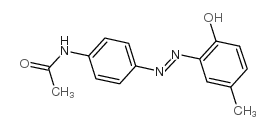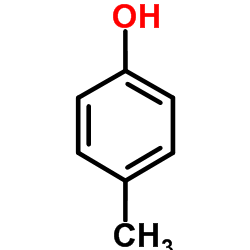This product was successfully added to cart!
品牌商品推荐
更多 >>商品详情
客户评价
| 密度 | 1.2 g/cm3 |
|---|---|
| 沸点 | 533.9?C at 760 mmHg |
| 熔点 | 268-270?°C(lit.) |
| 分子式 | C15H15N3O2 |
| 分子量 | 269.29900 |
| 精确质量 | 269.11600 |
| PSA | 74.05000 |
| LogP | 4.14740 |
| 外观性状 | 黄色粉末 |
| 蒸汽压 | 0mmHg at 25°C |
| 折射率 | 1.604 |
| 储存条件 |
密封于阴凉处避光保存 |
| 分子结构 |
1、 摩尔折射率:77.07 2、 摩尔体积(m3/mol):224.0 3、 等张比容(90.2K):579.4 4、 表面张力(dyne/cm):44.7 5、 介电常数(F/m):无可用 6、 偶极距(D):无可用 7、 极化率(10 -24cm 3):30.55 |
| 计算化学 |
1、 疏水参数计算参考值(XlogP):1.6 2、 氢键供体数量:2 3、 氢键受体数量:4 4、 可旋转化学键数量:3 5、 互变异构体数量:8 6、 拓扑分子极性表面积(TPSA):70.6 7、 重原子数量:20 8、 表面电荷:0 9、 复杂度:483 10、同位素原子数量:0 11、确定原子立构中心数量:0 12、不确定原子立构中心数量:0 13、确定化学键立构中心数量:1 14、不确定化学键立构中心数量:0 15、共价键单元数量:1 |
| 更多 |
1. 性状:棕黄色粉末 2. 密度(g/mLat 25°C):未确定 3. 相对蒸汽密度(g/mL,空气=1):未确定 4. 熔点(?C):268-270 5. 沸点(?C,常压):未确定 6. 沸点(?C,0.03mmHg):未确定 7. 折射率(n20/D):未确定 8. 闪点(?C):未确定 9. 比旋光度(?):未确定 10. 自燃点或引燃温度(?C):未确定 11. 蒸气压(hPa,21.1?C):未确定 12. 饱和蒸气压(kPa,114.4 ?C):未确定 13. 燃烧热(KJ/mol):未确定 14. 临界温度(?C):未确定 15. 临界压力(MPa):未确定 16. 油水(辛醇/水)分配系数的对数值:未确定 17. 爆炸上限(%,V/V):未确定 18. 爆炸下限(%,V/V):未确定 19. 溶解性:未确定 |
|
|
|
分散黄 3毒性英文版
|
| 符号 |


GHS07, GHS08 |
|---|---|
| 信号词 |
Warning |
| 危害声明 |
H317-H351 |
| 警示性声明 |
P280 |
| 个人防护装备 |
Eyeshields;Faceshields;full-face particle respirator type N100 (US);Gloves;respirator cartridge type N100 (US);type P1 (EN143) respirator filter;type P3 (EN 143) respirator cartridges |
| 危害码 (欧洲) |
Xn: Harmful; |
| 风险声明 (欧洲) |
R40 |
| 安全声明 (欧洲) |
S22-S36/37-S46 |
| 危险品运输编码 | NONH for all modes of transport |
| WGK德国 | 2 |
| RTECS号 | AC3662000 |
| 海关编码 | 2927000090 |
|
~%

分散黄 3
2832-40-8
|
|
文献:Masoud, Mamdouh S.; Osman, M. M.; Salem, T. M.; Khalil, E. A. Indian Journal of Chemistry, Section A: Inorganic, Physical, Theoretical & Analytical, 1981 , vol. 20, # 6 p. 584 – 587 |
| 海关编码 | 2927000090 |
|---|---|
| 中文概述 | 2927000090 其他重氮化合物、偶氮化合物等(包括氧化偶氮化合物). 增值税率:17.0% 退税率:9.0% 监管条件:无 最惠国关税:6.5% 普通关税:30.0% |
| 申报要素 | 品名, 成分含量, 用途 |
| Summary | 2927000090 other diazo-, azo- or azoxy-compounds。Supervision conditions:None。VAT:17.0%。Tax rebate rate:9.0%。MFN tariff:6.5%。General tariff:30.0% |
|
Multifunctional core-shell nanoparticles: discovery of previously invisible biomarkers. J. Am. Chem. Soc. 133(47) , 19178-88, (2011)
Many low-abundance biomarkers for early detection of cancer and other diseases are invisible to mass spectrometry because they exist in body fluids in very low concentrations, are masked by high-abund…
|
|
|
Assessment of the sensitizing potential of textile disperse dyes and some of their metabolites by the loose-fit coculture-based sensitization assay (LCSA). Arch. Toxicol. 86(5) , 733-40, (2012)
Certain textile disperse dyes are known to cause allergic reactions of the human skin. Here, we examined 8 disperse dyes and 7 products of azo-cleavage of these dyes in an in vitro assay. We used the …
|
|
|
Patch testing with the textile dyes Disperse Orange 1 and Disperse Yellow 3 and some of their potential metabolites, and simultaneous reactions to para-amino compounds. Contact Dermatitis 67(3) , 130-40, (2012)
It is known that, in vitro, human skin bacteria are able to split disperse azo dyes into the corresponding aromatic amines, some of which are sensitizers in the local lymph node assay. We hypothesize …
|
|
|
2-hydroxy-5-methyl-4′-acetamidoazobenzene |
|
Disperse Yellow 3 |
|
artisilyellowg |
|
4-(2-Hydroxy-5-methylphenylazo)acetanilide (N-[4-(2-Hydroxy-5-methylphenylazo)phenyl]acetamide |
|
estoneyellowgn |
|
C. I. Disperse yellow 3 |
|
Zlut di |
|
yellowz |
|
fenacetyellowg |
|
3-methyl-6-hydroxy-4′-acetylaminoazobenzene |
|
EINECS 220-600-8 |
|
4-Acetylamino-2′-hydroxy-5-methyl-azobenzol |
|
MFCD00002377 |
















